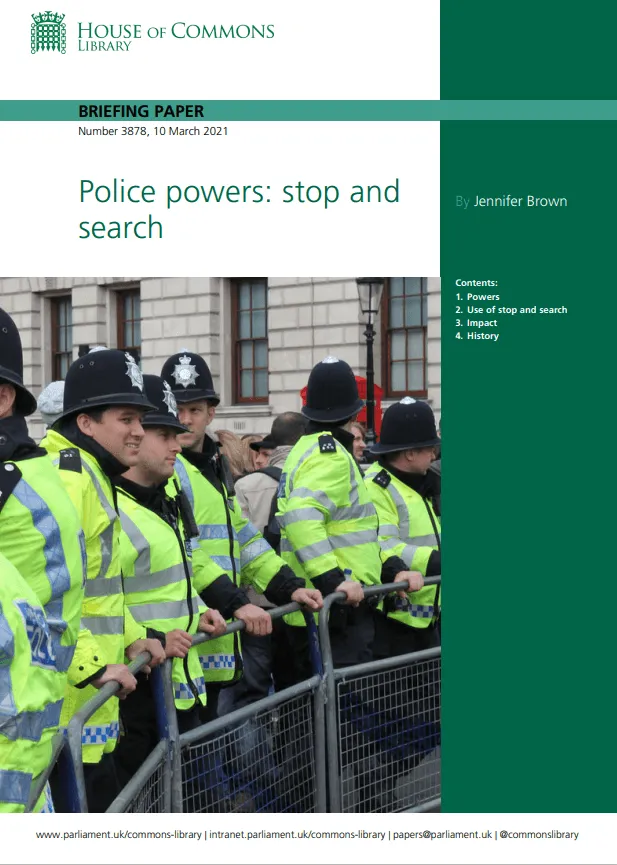
The police have a variety of legislative powers to stop and search those they suspect have certain items. Their stop and search powers allow them to “allay or confirm” their suspicions without making an arrest.
There are three types of stop and search powers:
• powers which require officers to have “reasonable grounds” to conduct the search, sometimes known as ‘section 1’ searches;
• a power which allows officers to search without reasonable grounds, sometimes known as ‘no suspicion’ or ‘section 60’ search. This power can only be used when authorised by a senior officer based on certain ‘pre-conditions’.
• a power officers can use to search those they ‘reasonably suspect’ are terrorists. This terrorism power is not discussed in this briefing.
Officers must use a specific legislative power every time they carry out a stop and search. They must use the correct power for the circumstances of each search. They cannot rely on someone’s consent alone to search them.
The Home Office maintains statutory guidance on the most frequently used stop and search powers in PACE Code A. The College of Policing (the body responsible for professional standards in policing) maintains an Authorised Professional Practice (APP) on stop and search. All English and Welsh police forces have subscribed to follow, at least in part, additional Home Office guidance on the best use of stop and search.
1. Police forces have reduced their use of stop and search over the past ten years, but the number of searches has recently increased. Around 577,000 searches were conducted in 2019/20. 58% fewer than in 2009/10 but 52% higher than in 2018/19.
The reduction in the use of stop and search was the result of reforms bought forward between 2013 and 2016. At the beginning of the 2010s there were concerns that the police were overusing their stop and search powers and conducting poorly targeted searches. This was resulting in some ineffective and unlawful use of stop and search. Reforms were introduced to police guidance which encouraged forces to ensure their use of stop and search was based on robust intelligence and information.
The current Government and policing leaders have argued that stop and search should form part of the response to violent crime. The Home Office has relaxed voluntary guidance on the use of pre-condition search introduced during the 2013-2016 reform period and encouraged forces to use their search powers more frequently.
The use of pre-condition search has increased markedly over the last three years. Most searches are conducted using reasonable grounds powers (97% in 2019/20) but the number pre-condition searches increased from 622 in 2016/17 to 18,081 in 2019/20. Pre-condition searches accounted for around 5% of the overall increase in the use of stop and search between 2017/18 and 2020/19.